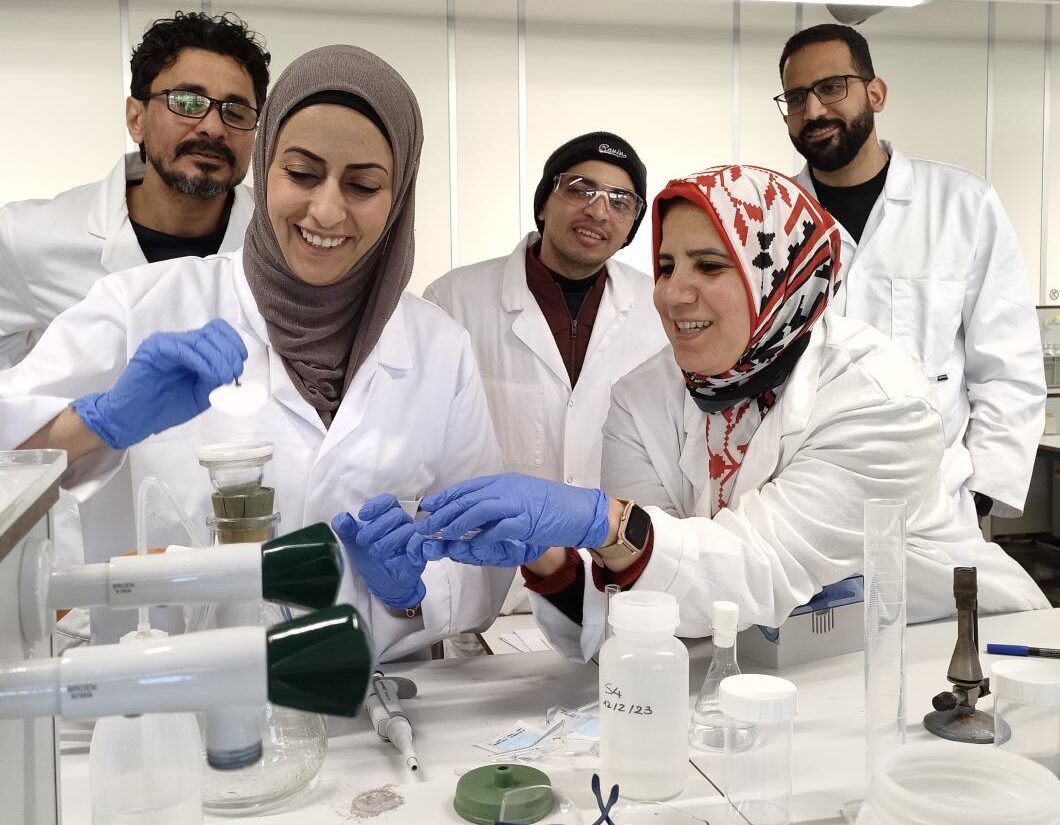Water Quality Assessment and Monitoring
This is a three weeks course covering the design and implementation of a monitoring network for surface- and groundwater bodies. The course consists of classroom, laboratory and field-based instructions designed to explain the theory and methodology of setting up a monitoring network with a hands-on component of planning a monitoring network in your country.

IHE Delft Institute for Water Education

IWA members get 40% discount on this course
Starts
Oct 05, 2025
Language
EnglishCertification
Certificate of ParticipationDuration:3 weeks
Course Type
OfflineMember fee: €3,303.00
Standard fee: €5,505.00
Course Description
This is a three weeks course covering the design and implementation of a monitoring network for surface- and groundwater bodies. The course consists of classroom, laboratory and field-based instructions designed to explain the theory and methodology of setting up a monitoring network with a hands-on component of planning a monitoring network in your country.
IWA Members can avail a 40% discount on the ConnectPlus platform!
Course Audience
Young and mid-career professionals (scientists, consultants, decision makers) within the water sector.
Learning Objectives
Select and apply appropriate methods to assess water quality in freshwaters in relation to their anticipated use.
Design and evaluate water quality monitoring networks for different types of surface and groundwater in relation to set objectives.
Report the results of water quality assessment and monitoring programmes using appropriate statistical tools for interpretation and presentation of large data sets.
Learning Format
Related IWA Specialist Groups
Groundwater Management
Groundwater resources are integral to global water supply, serving potable, industrial, agricultural, and ecological needs. However, they are often overlooked in management, leading to unsustainable exploitation and contamination. The IWA Groundwater Management Specialist Group provides a vital platform for interdisciplinary discussions on groundwater use, management, and protection worldwide. Over the next four years, the group aims to mobilize water utilities for urban groundwater management, emphasize groundwater storage for climate resilience, integrate groundwater into Integrated Water Resources Management (IWRM), enhance urban groundwater monitoring, and regulate large-scale private groundwater use in developing cities. These efforts are crucial for ensuring the sustainability and security of groundwater resources.
Modelling and Integrated Assessment (MIA)
“MIA represents expertise and experience in all aspects related to modelling and assessment of water systems and encourages practical application. It is a highly active and dynamic group, with a special focus on young water professionals, for example we include 14 affiliated YWPs on the management committee. Welcome!”
– Ulf Jeppsson (MIA Chair)
Objectives of the SG
The objective of the Specialist Group (SG) is to address and promote all aspects of modelling, simulation and the formal methods of applying integrated assessment for managing and improving the quality of the aquatic environment. The MIA SG targets people from research, consulting companies, institutions and operators to consider and apply the use of models and computing tools to support the understanding, management and optimization of water systems. This includes the development and application of mathematical models and modelling tools, such as optimisation algorithms, time-series analysis and forecasting, computational procedures for decision analysis and support, uncertainty analysis... It hereby stimulates transfer of knowledge between academia and industry and between different areas within the water cycle. The Group is also responsible for maintaining a forum for the discussion of inter-disciplinary issues within the IWA to augment the engineering and economic elements of problem-solving with those having human, institutional and cultural dimensions to them. The SG is also directed, therefore, at developing and promoting the application of systematic procedures for Integrated Assessment.
Task Groups and Working Groups
The SG stimulates initiation and hosts several Task Groups (TG) and Working Groups (WG) on specific emerging topics of interest.
- The TG of Design and Operations Uncertainty increases efficiency and transparency of wastewater infrastructure (design/operations) via the use of numerical simulation including statistical analysis.
- The TG of Generalized Physico-chemical Modelling develops a physico-chemical framework with high predictive capacity that is usable across the range of unit operations by both modellers and end-users.
- The TG of Use of Modelling for Minimizing GHG Emissions from Wastewater Systems helps to understand the processes that are responsible for the major contributions to GHG emissions from WWTPs and sewer systems and then translates this knowledge into modelling tools and provide guidance on how to use them for mitigating GHG emissions.
- The TG of Membrane Bioreactor Modelling.
- The TG of Benchmarking of Control Strategies promotes the use of the benchmark simulation protocols (BSM1, BSM1_LT and BSM2). (finished)
- The TG of Good Modelling Practice provides practical guidance to users of ASMs around the world. (finished)
- The WG of Integrated Urban Water Systems promotes the exchange of ideas and experiences for use and development of tools and methods for modelling integrated urban water systems.
- The WG of Computational Fluid Dynamics promotes the exchange of ideas and experiences regarding the use of CFD in the field of water and wastewater treatment.
- The WG of Life Cycle Analysis facilitates the exchange of ideas and develops consensual methodologies, in order to promote better use of LCA in the urban water systems.
- The WG of Good Modelling Practice provides practical guidance to users of ASMs around the world.